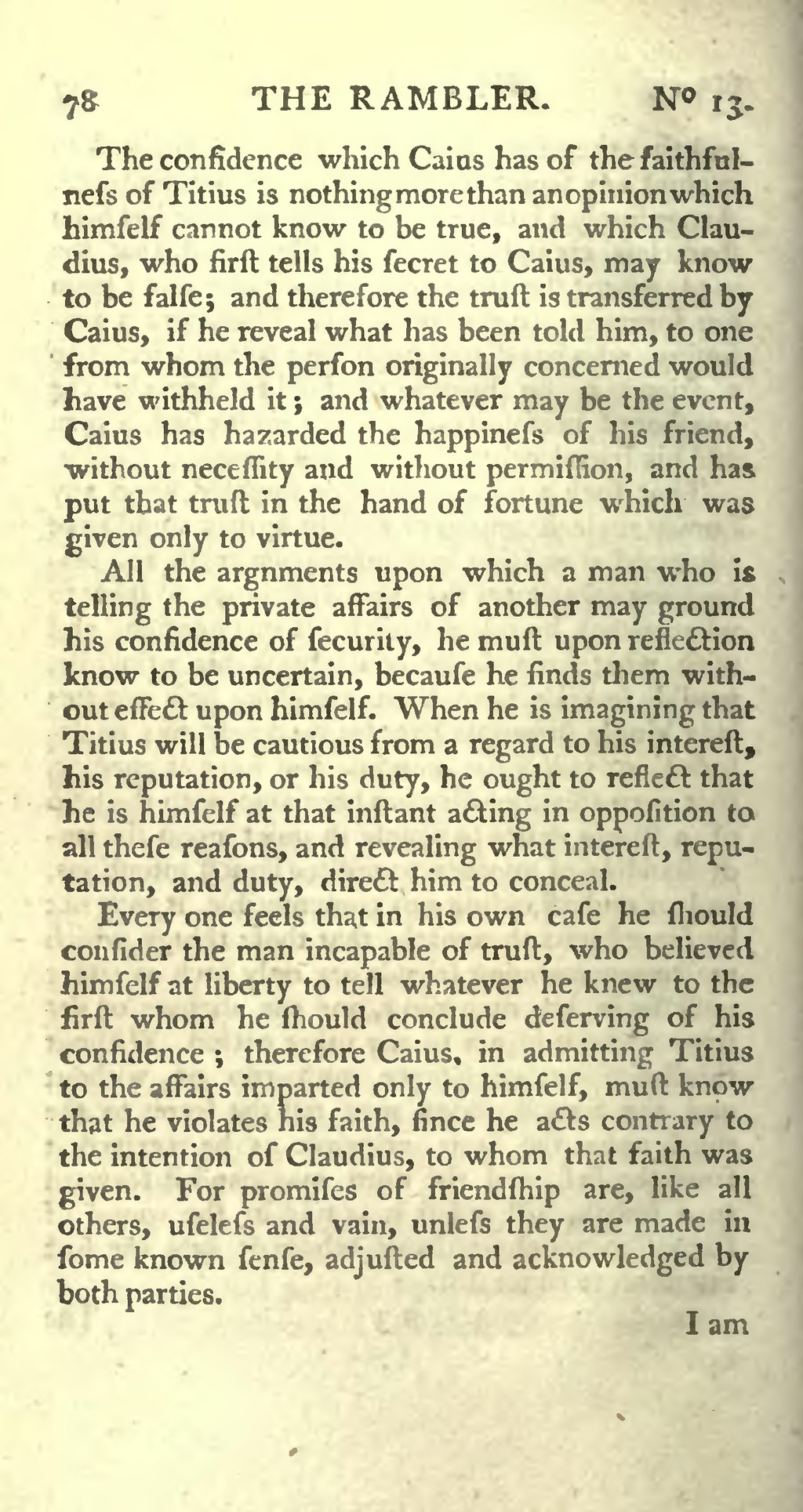The confidence which Caius has of the faithfulness of Titius is nothing more than an opinion which himself cannot know to be true, and which Claudius, who first tells his secret to Caius, may know to be false; and therefore the trust is transferred by Caius, if he reveal what has been told him, to one from whom the person originally concerned would have withheld it; and whatever may be the event. Caius has hazarded the happiness of his friend, without necessity and without permission, and has put that trust in the hand of fortune which was given only to virtue.
All the arguments upon which a man who is telling the private affairs of another may ground his confidence of security, he must upon reflection know to be uncertain, because he finds them without effect upon himself. When he is imagining that Titius will be cautious from a regard to his interest, his reputation, or his duty, he ought to reflect that he is himself at that instant acting in opposition to all these reasons, and revealing what interest, reputation, and duty, direct him to conceal.
Every one feels that in his own case he should consider the man incapable of trust, who believed himself at liberty to tell whatever he knew to the first whom he should conclude deserving of his confidence; therefore Caius, in admitting Titius to the affairs imparted only to himself, must know that he violates his faith, since he acts contrary to the intention of Claudius, to whom that faith was given. For promises of friendship are, like all others, useless and vain, unless they are made in some known sense, adjusted and acknowledged by both parties.
